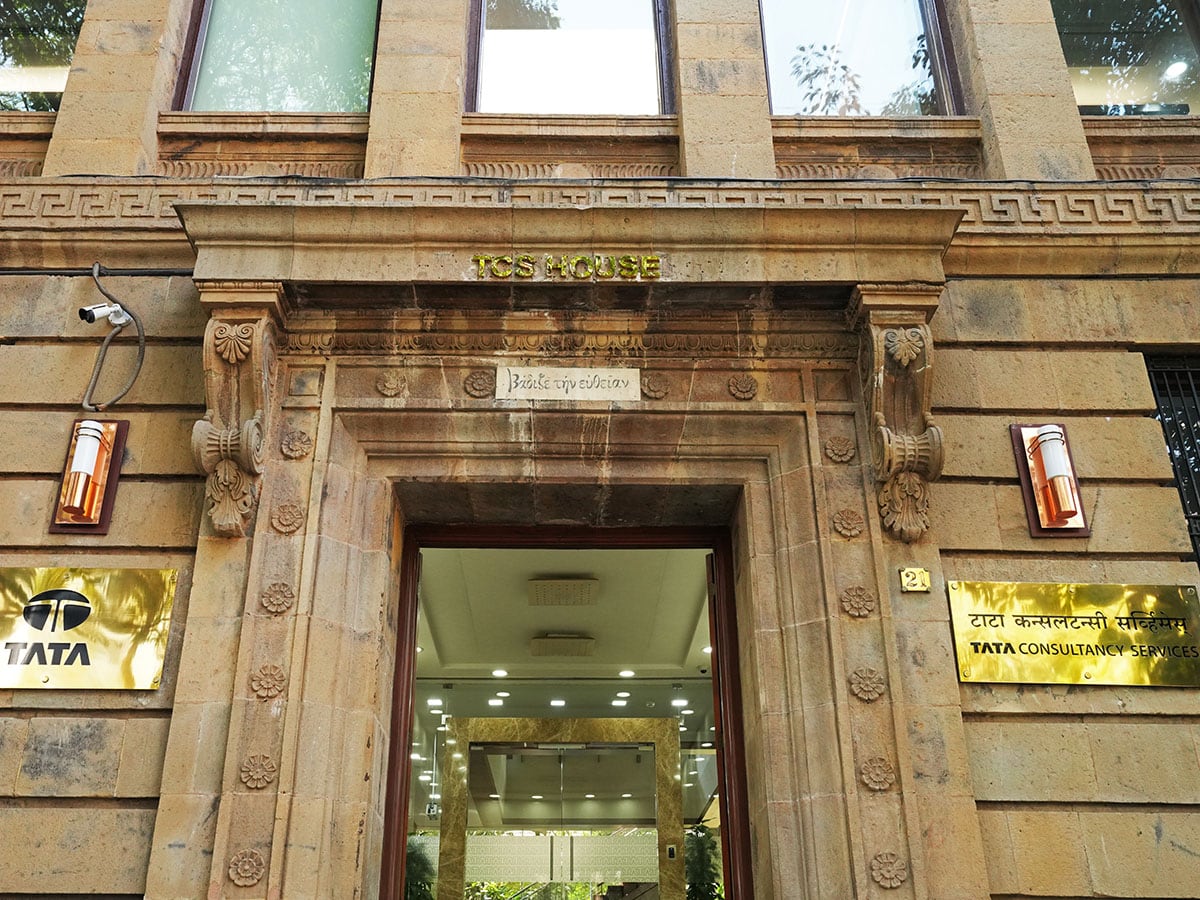 Tata Consultancy Services Ltd.’s office in Mumbai, India, on Feb. 12, 2025. TCS leads India’s $250 billion software services sector that helps global clients such as Apple Inc. and Bank of America Corp. with business continuity as well as offerings in cloud computing, automation and artificial intelligence.
Tata Consultancy Services Ltd.’s office in Mumbai, India, on Feb. 12, 2025. TCS leads India’s $250 billion software services sector that helps global clients such as Apple Inc. and Bank of America Corp. with business continuity as well as offerings in cloud computing, automation and artificial intelligence.
Image: Abeer Khan/Bloomberg via Getty Images
India planning Chandrayaan-4 Moon mission: Union minister
India is planning Chandrayaan-4, the country’s next Moon mission, with advanced docking and lunar sample collections among its objectives, Jitendra Singh, minister for science and tech, told the Lok Sabha on March 19, according to a ministry press release.
On the Gaganyaan human space flight mission, the minister said four astronauts are undergoing rigorous training with Group Captain Shubhanshu Shukla designated to join the mission to the International Space Station (ISS).
Separately, Prime Minister Narendra Modi conveyed his good wishes and an invitation to visit India in a letter to US astronaut Sunita Williams, who returned to Earth from the ISS earlier this week, along with fellow astronaut Butch Wilmore, after a nine-month delay.
SoftBank to buy chip design specialist Ampere for $6.5 billion
SoftBank Group Corp has struck a $6.5 billion deal to buy Ampere Computing Holdings, a US-based semiconductor design company, the Japanese internet and telecom giant said in a press release on Thursday.
Ampere is focussed on high-performance, energy efficient, sustainable AI compute based on the ARM compute platform. Ampere will become an indirect, wholly owned subsidiary of SoftBank, according to the release.
Ampere’s energy-efficient processors are specialised for next-generation cloud computing and AI workloads. With approximately 1,000 highly skilled semiconductor engineers and its notable technological capabilities, Ampere is expected to play a key role in future growth markets, according to the release.
Nvidia CEO Jensen Huang says humanoid robots only a ‘few years’ away
Nvidia’s founder and CEO Jensen Huang believes humanoid robots capable of being widely used in factories are less than five years away, Reuters reported from the AI chipmaker’s annual developer conference on March 18. The economics of it also makes a compelling case for the development of such technologies to be stepped up, he said.
Huang told reporters at the conference that signs of AI being everywhere will be when humanoid robots are commonplace. This wasn’t a five-years-away problem, but only a “few-years-away problem”, he said, according to Reuters. Huang expects factories will be the first to use such robots because the applications will be more well defined and safety guardrails easier to establish.
TCS wins five-year contract to modernise Air New Zealand’s IT systems
Tata Consultancy Services (TCS) has won a five-year contract from Air New Zealand to modernise the airline’s digital infrastructure, the Indian IT services company said in a press release on March 20. TCS will improve Air New Zealand’s digital capabilities and customer experience, and help the airline save money on its operations, including in fleet management, crew scheduling, and ground services.
TCS has been serving customers in New Zealand for 37 years, according to the press release. Today it has 460 employees in the country, and more than 20 large enterprise customers in the region in banking, retail, construction, manufacturing and local government.
Air New Zealand’s network offers passenger and cargo services to 49 domestic and international destinations. Each year, the airline flies more than 15 million passengers on more than 3,400 weekly flights. TCS will also offer upskilling programs to the airline’s staff in AI and cybersecurity.
Endiya sees 4x MOIC on first fund, strong pipeline from portfolio
Endiya Partners has achieved a 4x multiple on invested capital (MOIC) from its first fund of Rs175 crore raised in 2016, the early-stage venture capital firm said in a recent note.
The fund’s performance includes a partial exit from Darwinbox, a cloud-based HR tech platform that has emerged as a unicorn in the enterprise SaaS space. Endiya has backed startups in SaaS, cybersecurity, semiconductors and digital health. Endiya’s portfolio has yielded “multiple strategic exits, secondary sales, and a robust IPO pipeline”, according to the note.
In addition to Darwinbox, where Endiya led the seed round, Endiya’s portfolio companies Steradian Semiconductors and ShieldSquare saw exits via acquisitions by Renesas and Radware respectively. In health care technology, SigTuple’s FDA-cleared AI pathology platform secured a global distribution licensing deal with Horiba.
The firm is currently deploying money from its third fund.
 Tata Consultancy Services Ltd.’s office in Mumbai, India, on Feb. 12, 2025. TCS leads India’s $250 billion software services sector that helps global clients such as Apple Inc. and Bank of America Corp. with business continuity as well as offerings in cloud computing, automation and artificial intelligence.
Tata Consultancy Services Ltd.’s office in Mumbai, India, on Feb. 12, 2025. TCS leads India’s $250 billion software services sector that helps global clients such as Apple Inc. and Bank of America Corp. with business continuity as well as offerings in cloud computing, automation and artificial intelligence.
